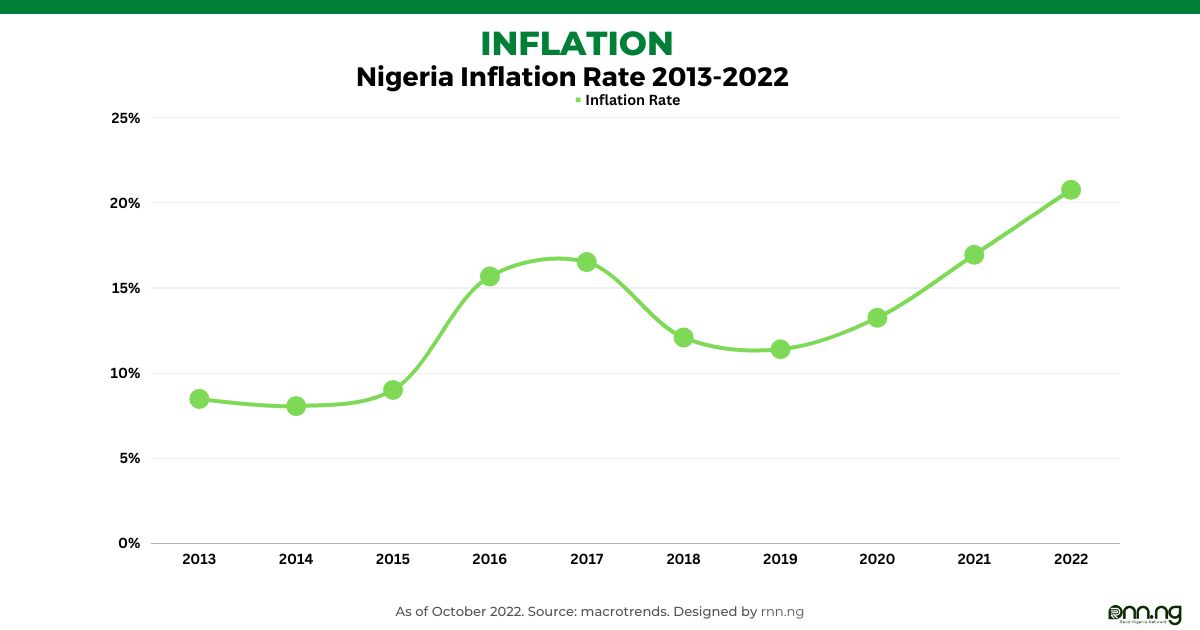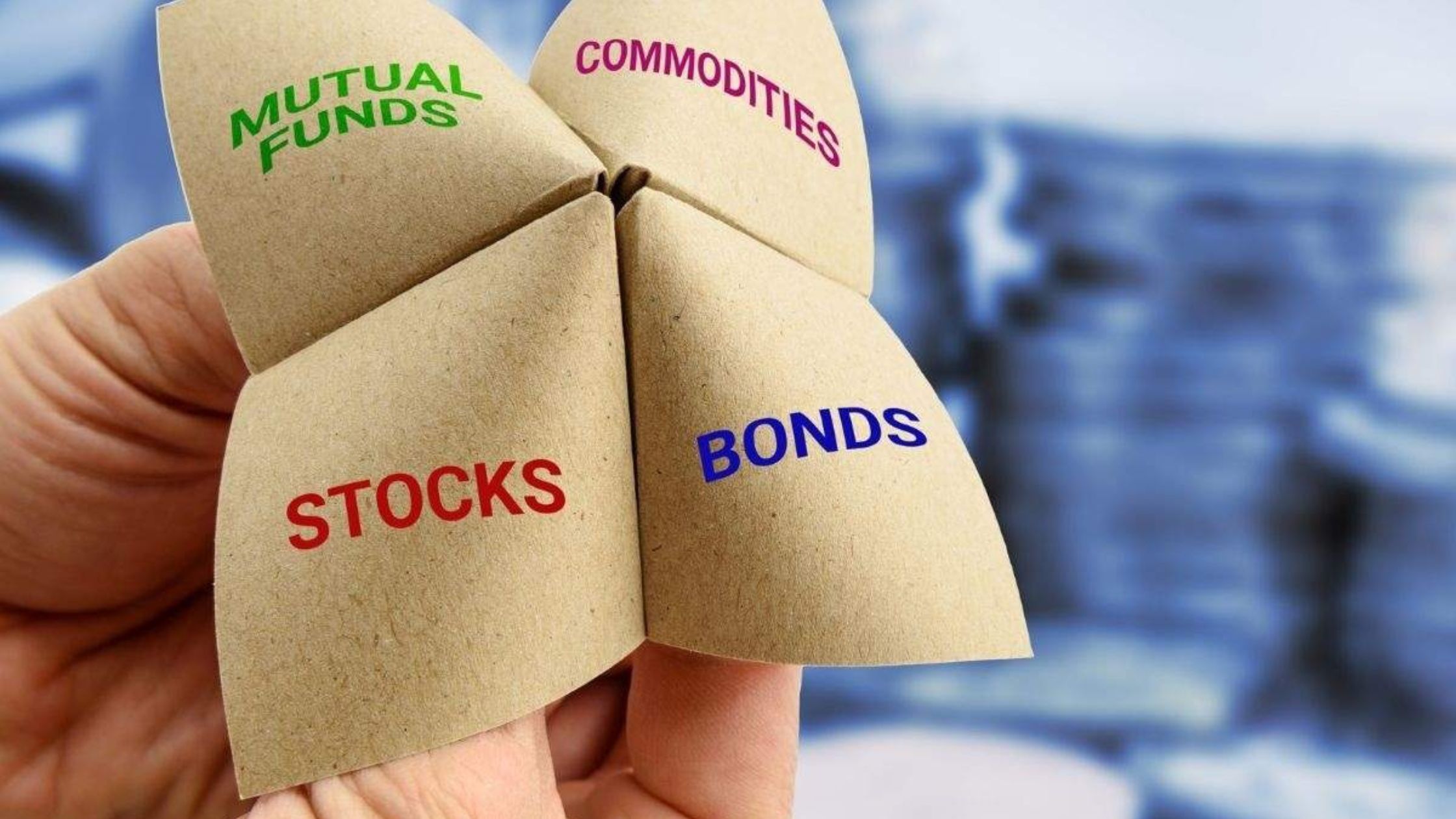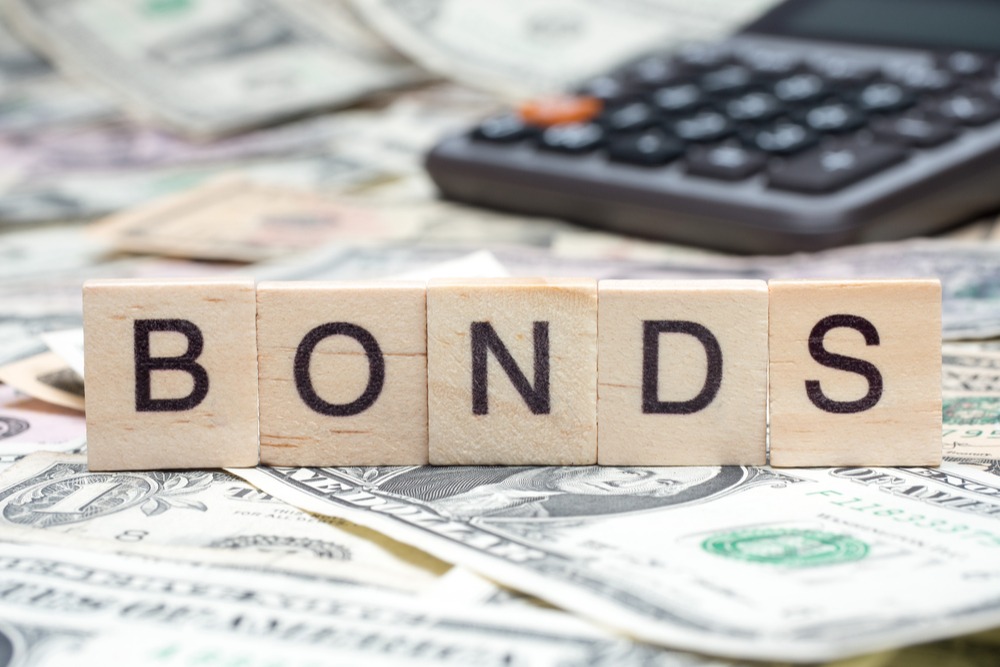Business News
What to Do With The Naira as Inflation Rate Jumps to 20.77%
What to Do With The Naira: Some investors have already shied away from investing in the largest frontier market of the country due to…

What to Do With The Naira: In the previous eight years, the value of the Nigerian naira has decreased by more than 164.62%. As a result, someone earning ₦200k ($1212) a month in 2014 would have gotten more for his money than someone earning ₦400k ($917) in 2022. Learning how to control inflation in Nigeria is crucial given this situation.
One of the main causes of currencies losing value is inflation, which is the overall increase in the cost of goods and services over time. This results in a reduction in consumer spending ability and an increase in the cost of living. Accordingly, if your shopping budget in 2021 was 30,000 Naira ($74), you would likely need to increase it to 32,200 Naira ($74) to buy the same items at the official exchange rate of the dollar to the naira at the time of writing.
READ MORE: Top 5 Investment Ideas in Nigeria
Disclaimer: The information in this post is not intended to be advice on finances. RNN is not responsible for any financial decisions made based on this article.
The Investors’ View
Some investors have already shied away from investing in the largest frontier market of the country due to its surging inflation and a lack of high-yielding investment opportunities. This increase in the price of goods and services places a high priority on the risk that investors face.
Because you need to continually achieve returns that are higher than the current inflation rate to make significant progress toward your investment goals, inflation has a negative influence on the ordinary investor’s portfolio.
This suggests that, given the current inflation rate of 20.77%, the ordinary Nigerian investor should search for yields more than that.
It is encouraging to learn that the lack of demand for the naira is one of the main reasons why it is depreciating in value and this is because we do not generate anything that will make people(most especially, in the international market) demand the Naira in Nigeria.
Nigeria’s inflation rate

Graphical representation of changes in Nigeria’s inflation rate from 2013 to 2022
For instance, if you want to order something from the United States, you’ll need to pay in dollars rather than naira, thus you’ll need to find dollars in order to complete the transaction successfully.
However, for Nigeria, just a small percentage or none of our products are in significant demand abroad. And there shouldn’t be any need to spend money when there is no item to purchase.
Nigeria’s manufacturing sector contributed less than 8% of the GDP, down from 20% in 1981, according to the World Bank. It is not what it once was, although having increased to 12% since 2014 and shows some signs of growth in 2022.
However, there are other reasons that contribute to currency depreciation as well, such as interest rate differences, weak economic fundamentals, insecurity, and political instability.
For instance, Rwanda’s high inflation rates were a result of low economic output and a high reliance on imports of goods and services.
READ MORE: Where To Invest Money In Nigeria
Here is what to do with the naira as the inflation rate Jumps to 20.77%
1. Invest in stocks outside of Nigeria

What to Do With The Naira as inflation keep rising to 20.77%
Before the development of investment applications, the difficulties involved in investing in publicly traded stocks like Tesla and Netflix would definitely have outweighed the benefits. Fortunately, mobile apps now make it feasible to invest in businesses from the convenience of your home.
So, what you can do with the naira as the inflation rate jumps to 20.77% is to invest in stocks of businesses that are domiciled in countries with lower inflation rates than Nigeria.
You can purchase stock in companies that are domiciled in countries with lower inflation rates than Nigeria using the following apps:
- Bamboo
- i-invest
- Trove
- Chaka
- Risevest
READ MORE: Top 10 Apps for Buying Shares in Nigeria
2. Exposure to a specific commodity
Inflation is generally linked to the supply and demand of key commodities, and when inflation is present, commodity prices typically increase. As a result, commodity investors may see significant gains during periods of high inflation.
To survive, you can make investments in commodities themselves or funds that are centered on them. You gain exposure to the dollar through these funds’ investments in derivatives relating to a particular commodity or a basket of commodities, which might shield you from the naira’s depreciation.
Another way to invest in commodities is to buy the stock of firms that produce them, such as mining and oil corporations. Inflation generated by commodities often results in higher revenue and profit for these businesses. But keep in mind that the price of commodities is incredibly unpredictable and subject to shifts in supply and demand.
3. Keep your money in other currencies, like the dollar

What to Do With The Naira as inflation keep rising
One of the simplest and most effective strategies that you can do with the naira in order to combat inflation in Nigeria is to save in foreign currencies like the dollar. A few of the aforementioned investment platforms also provide access to dollar savings.
4. Mutual funds

what to do with the naira as the inflation rate Jumps to 20.77%
When you invest in a mutual fund, you are using a pooled investment vehicle where an expert fund manager will handle your money in line with the fund’s objectives.
The Asset Under Management (AUM) is the total of all investments made by different investors, and it is comprised of their individual investment amounts. AUM is then invested in the appropriate capital markets, such as equities, bonds, commodities, etc. Mutual funds are quite useful for investors searching for passive income because you don’t need to examine the markets or keep an eye on pricing.
By examining the fund’s past performance, you must only look for funds that have performed the best over the course of the previous five years, at the very least. Additionally, you need to check the mutual funds you are investing in terms of performance.
5. Digital assets
The option with the greatest risk is probably investing in cryptocurrency. On favorable days, they offer incredibly high yields immediately. On the other hand, you may quickly lose the value of your possessions on bad days.
Due to their price volatility, cryptocurrencies are a riskier option than conventional investing. Stablecoins are an option for investors seeking exposure to dollar-denominated assets, but they are unregulated and involve significant risk.
6. FGN Bonds

What to Do With The Naira as inflation keep rising to 20.77%
The Federal Government of Nigeria’s average yield has risen to more than 13%, according to data from the FGN Bonds Market, even though it is lower than the high inflation rate in the country. This is especially true of the longer-yielding bonds that were issued after an interest rate hike. This opens a door for keeping the inflationary mosquito out of the nation’s financial system.
Even though real returns on fixed-interest securities are often negative due to the rising inflation rate that has surpassed the rate, FGN bonds nonetheless provide a moderate level of security for your money.
Summary
here is a summary list of what to do with the naira as the inflation rate Jumps to 20.77%
- Invest in stocks outside of Nigeria
- Exposure to a specific commodity
- Keep your money in other currencies, like the dollar
- Mutual funds
- Digital assets
- FGN Bonds
